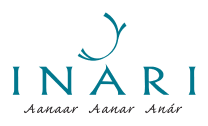Working in the tourism sector
The tourism industry offers unforgettable experiences for both tourists and employees. Every winter, hundreds of seasonal workers come to work in Inari as hotel and restaurant workers, drivers, safari guides and in other tourism-related positions.
The ethical standards for tourism in Inari are constantly being developed, with continual efforts being made to take into account the impacts of tourism on the local community and the environment. As an employee, you can participate in developing ethically responsible tourism by, for example, familiarizing yourself with the local culture and practices, paying attention to safety and respecting nature.
Seasonal work
A large proportion of jobs in the tourism sector are available only during the winter season. Seasonal work offers a unique opportunity to get to know Inari, meet people from around the world and enjoy the experiences offered by the Arctic winter. The winter season in the tourism sector usually lasts from November to the end of March. Many companies start hiring during the late summer for the following winter, so late summer/autumn is the best time to apply.
The largest number of tourists come in December, so it is best to be prepared for long and busy workdays during this period. The nature and peaceful surroundings, however, help to bring balance to busy work life.
If you´re planning to spend the season in Inari, it may prove to be the best decision of your life, but beware - many people fall in love and end up staying for good!
Working outdoors
See also this winter clothing video made by Inari municipal communication center Viestintäpaja to learn how to properly dress for the Arctic winter:
Culturally sensitive tourism
You can learn about culturally sensitive tourism in the Arctic area by taking this free online course (by "Culturally Sensitive Tourism in the Arctic" – ARCTISEN -project). It is a free, self-paced online course that gives a practical introduction to how to develop and conduct tourism business activities in the Arctic region in a way that respects local cultures. The course is primarily intended for tourism sector operators and workers in the Arctic region, but it is suitable also for anyone wishing to promote culturally sustainable tourism that respects indigenous peoples and other local cultures.
The Sámi Parliament has also published ethical guidelines for Sámi tourism which should be read by those working in the tourism sector. They are primarily meant for tourism actors and operators outside the Sámi community who carry out touristic productisation, representation, marketing and communications of Sámi culture.
